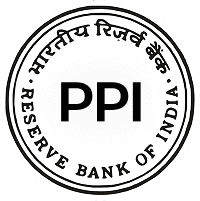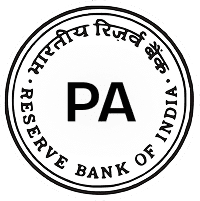EnFin is your go-to source for all things fintech—fresh, fast, and to the point. Curated for professionals on the move, EnFin keeps you updated with the latest developments, key announcements, industry updates, and policy changes shaping the fintech landscape.
India Emerges as Global Fintech Leader
India’s fintech sector is experiencing rapid growth, propelled by a 35% CAGR in digital lending during 2024. This expansion is driven by robust digital infrastructure, UPI, Aadhaar, and Account Aggregator frameworks, and a mobile-first population. The surge in credit demand is attracting global investors, positioning India as a pivotal fintech hub.
Originally posted on BFSI Economic Times
Flipkart Secures RBI Nod for Direct Lending
Flipkart has received a non-banking finance company (NBFC) licence from the Reserve Bank of India, enabling it to offer loans directly to customers and sellers. This marks the first time a major Indian e-commerce platform has obtained such approval, signaling Flipkart’s expansion into fintech.
Originally posted on Money Control
Fintech Bodies Raise Alarm Over RBI’s New Mandate
Fintech associations fear the RBI’s rule against offsetting DLGs may lead to double provisioning. They’re gathering data to show the impact on lenders, who must comply by September 30th, hoping evidence might prompt a rethink by the regulator.
Originally posted on Business Standard
The Future of Fintech: QED-BCG Global Fintech Report 2025
Fintech is evolving swiftly, with revenues growing 21% year-on-year. A new report highlights five key trends from advanced AI to on-chain finance shaping its future. Though still smaller than traditional finance, fintech is clearly outpacing it in growth and innovation.
Originally posted on Economic Times
Aadhaar Hits 211 Cr Authentications: Powering CX & Services
India recorded over 211 crore Aadhaar authentication transactions in May 2025, highlighting the growing reliance on digital identity verification. This surge enhances fintech services like KYC and digital lending, streamlining user onboarding and fostering financial inclusion.
Originally posted on BFSI Economic Times
RBI Slashes Repo Rate by 50 bps to 5.50%, Shifts Stance to Neutral
The Reserve Bank of India (RBI) has reduced the repo rate by 50 basis points to 5.50% and changed its policy stance from ‘accommodative’ to ‘neutral’. This third consecutive cut aims to stimulate economic growth amid subdued inflation, with the central bank also lowering the Cash Reserve Ratio by 100 basis points to enhance liquidity.
Originally posted on Mint
₹500 Note Still Valid: RBI Clarifies Amid Rumors
The ₹500 note remains legal tender, with no plan to withdraw it, despite online rumors. RBI’s recent ATM directive aims to boost the availability of smaller notes, not phase out ₹500. Digital payments and lower denominations are being prioritized, not enforced.
Originally posted on Business Today
IRCTC Eyes RBI Nod to Enter Payment Aggregation
IRCTC may receive RBI’s in-principle nod for a payment aggregator licence in 2–3 months, aiming for final approval within a year. This move could boost revenues from FY27, leveraging railway-linked transactions and expanding fintech services beyond its current iPay platform.
Originally posted on Financial Express
Government Tightens Digital Payment Security
To counter fraud, the Finance Ministry, RBI, and NPCI have introduced key measures to secure digital transactions. Officials dismissed claims of rising fraud. The I4C, set up in 2020, leads cybercrime efforts. Banks reported 63,315 major digital payment frauds from 2014 to 2024.
Originally posted on Times of India
SEBI Mandates ‘@valid’ UPI Handles to Combat Market Fraud
SEBI will require all registered intermediaries, brokers, mutual funds, and advisers to use a verified UPI ID with the “@valid” suffix and green thumbs‑up icon from October 1, 2025. A new “SEBI Check” tool will help investors confirm legitimacy.
Originally posted on Business Standard
Govt Targets ‘Dark Patterns’ in Digital Platforms
India’s CCPA has warned over 50 e-commerce, fintech, ride‑hailing, and travel apps to eliminate deceptive “dark patterns” like false urgency and basket sneaking within three months through self‑audits, threatening penalties for non‑compliance.
Originally posted on Financial Express
India’s New Payments Board to Accelerate Fintech Expansion
A six-member Payments Regulatory Board (PRB) featuring both central bank and government nominees has been made by the RBI. This board aims to modernize India’s payment regulations, foster innovation, enhance inclusion, and potentially evolve into an independent regulator.
Originally posted on Money Control
No MDR on UPI Transactions, Confirms Finance Ministry
The Finance Ministry has clarified that no Merchant Discount Rate (MDR) will be levied on UPI transactions. This ensures continued zero-cost digital payments for both consumers and merchants, reinforcing the government’s commitment to promoting a seamless and inclusive digital payment ecosystem.
Originally posted on BFSI ET
Digital Rupee Pilot Speeds Up: India Nears Decentralized Payments
India’s central bank is advancing its digital rupee pilot, aiming to reshape decentralized payments. With over 1.8 million transactions daily, the CBDC is being tested across sectors, including retail and interbank settlements, signaling a major shift in how digital currency could transform India’s financial ecosystem.
Originally posted on BFSI ET
FM Urges Fintechs to Tap Rural India at Digital Payments Awards 2025
At the Digital Payments Awards 2025, Finance Minister Nirmala Sitharaman urged fintechs to view agri and rural sectors as growth markets, not just CSR. Emphasizing “phygital” innovation, she highlighted the need for inclusive, tech-driven financial solutions to expand digital adoption across Bharat. She also insisted on the need to strengthen cybersecurity.
Originally posted on Business Standard
Fintech Industry Urges MDR on Large UPI Merchants
Fintech firms are advocating for the introduction of Merchant Discount Rate (MDR) on large UPI merchants to ensure sustainability and innovation in the ecosystem. They argue that compensating service providers will improve infrastructure, enhance user experience, and drive long-term growth in digital payments adoption.
Originally posted on Business Standard
Indian Banks Face Payment Risk as SWIFT Deadline Nears
Indian banks risk cross-border payment disruptions if they miss SWIFT’s November 2025 deadline to adopt ISO 20022 messaging standards. Delays could impact global transactions, forcing fintechs and banks to accelerate compliance and upgrade their payment infrastructure to avoid operational setbacks.
Originally posted on Economic Times
TRAI-RBI Move to Curb Spam Calls from Banks
TRAI and RBI are collaborating to stop spam calls from banks promoting loans and credit cards. This initiative enhances customer trust, reduces fraud risks, and pushes fintechs and lenders to adopt more compliant, consent-based communication strategies in customer engagement.
Originally posted on Economic Times
India’s Fintech Market Set to Reach $400 Billion by 2027: FM
Finance Minister Nirmala Sitharaman projects India’s fintech market to grow to $400 billion in three years. Driven by innovation, financial inclusion, and digital infrastructure, this surge opens major opportunities for startups, investors, and tech-driven financial solutions across urban and rural India.
Originally posted on Hindustan Times
RBI Introduces STRIPS for State Bonds to Enhance Liquidity
RBI has launched STRIPS for State Development Loans, allowing them to be traded as zero-coupon bonds. This move boosts bank liquidity, creates flexible investment options, and deepens the debt market, benefiting financial institutions, fintechs, and wealth management platforms alike.
Originally posted on BFSI ET
RBI Signals Shift: Drains ₹1 Trillion to Tighten Liquidity
India’s central bank plans a ₹1 trillion seven-day reverse repo auction on June 27, marking a pivot from liquidity infusions. The aim is to anchor short-term rates within its corridor, cool bond markets, and reinforce policy rate effectiveness after months of surplus cash
Originally posted on Money Control
NPCI Simplifies UPI Chargebacks, Boosting User Confidence
From July 15, banks can now raise UPI chargebacks directly, bypassing NPCI approve,l accelerating dispute resolution, enhancing transparency, and improving customer protection. This streamlines operations, reduces delays, and fortifies trust in India’s digital payments ecosystem.
Originally posted on CNBCTV18
NPCI Posts 42% Profit Surge in FY25
NPCI’s standalone net surplus soared 42% to ₹1,552 crore in FY 25, with revenue climbing to ₹3,270 crore. This growth strengthens its core UPI, IMPS, and BBPS platforms promoting digital adoption and financial infrastructure resilience.
Originally posted on Money Control
AI Reshapes Expense Management for Indian CFOs
Indian CFOs are rapidly adopting AI to automate expense management, improve compliance, and gain real-time insights. This shift enhances decision-making, reduces manual errors, and empowers finance teams to focus on strategic growth rather than routine operations.
Originally posted on Business World
Indian bonds steady as RBI liquidity plan eases sell-off
Indian government bonds held steady as initial sell-off eased following the RBI’s ₹1 trillion seven-day VRRR auction plan. Yields on 10‑year and 5‑year bonds remained around 6.28% and 6.02%, with investors awaiting Friday’s ₹360 billion bond auction.
Originally posted on Mint
NPCI Enables Real-Time PAN Bank Linking for Faster Tax Refunds
NPCI has launched a real-time PAN bank account validation API on the Income Tax e‑filing website to streamline verification via banks’ core systems. This speeds up income tax refunds, minimizes errors, and strengthens digital trust in fiscal services.
Originally posted on Economic Times
RBI Eases Priority Sector Lending Norms for SFBs
RBI has reduced the priority sector lending (PSL) target for Small Finance Banks from 75% to 60% of their adjusted net bank credit. This move boosts SFBs’ lending flexibility, enabling greater diversification and improved asset quality management.
Originally posted on Economic Times
Stay updated with industry fresh updates from EnFin.












